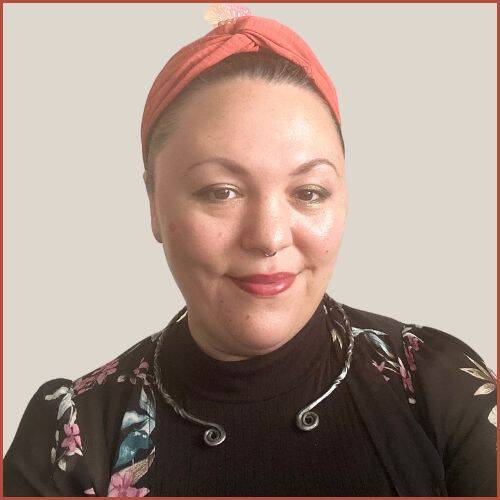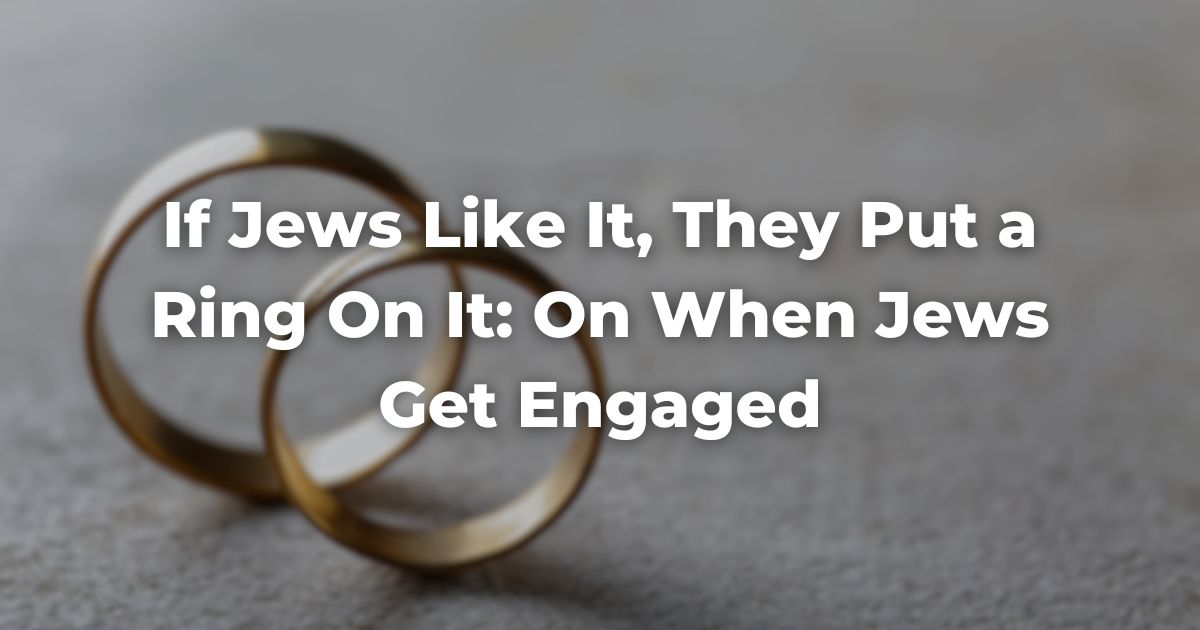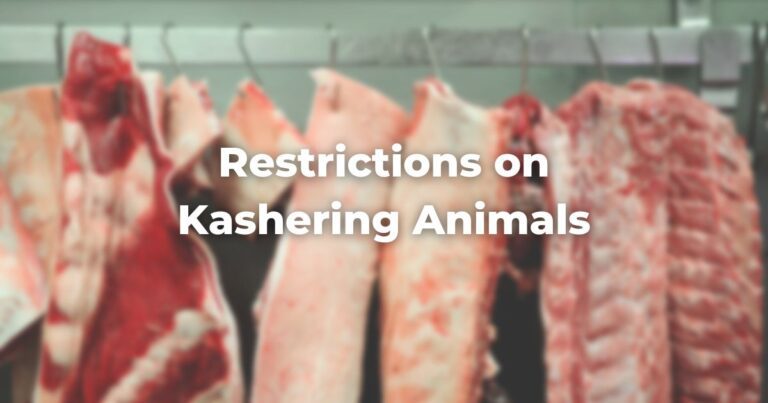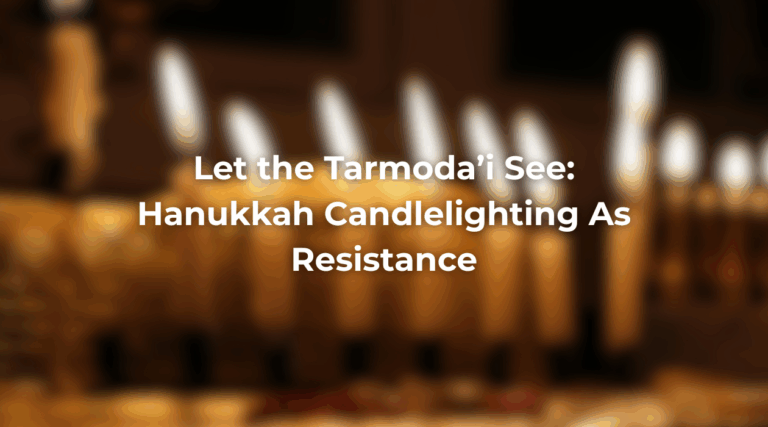Do Jews get engaged? The answer: yes – absolutely. So, that means a beautiful, blingy ring, a big party, the obligatory announcement on Facebook with cute photos of the couple, and some wish lists on Amazon, right?
Yes. And no.
Yes, because engagement has always been a cause for celebration in Jewish tradition.
No, because the act of engagement from a Halakhic perspective (Jewish law) presents us with some interesting legal ramifications.
Back in the day (pretty much up until the mid-eighteenth century for most Jewish communities), if you were a Jewish woman who got engaged to a Jewish man and something went amiss, you’d have to get a divorce.
Divorce?! You might think. But this couple isn’t married yet! Why divorce?
Because, according to Halakha the couple is legally married from the time they get engaged.
You see, engagement in Jewish tradition is legally binding because of a formula recited (traditionally by the man) which forbids all other potential matches to the couple and dedicates them to each other in an agreement of marital fidelity.
While the consummation of the marriage is still important (and hopefully the most fun, if we’re being honest), this formula puts a legal agreement on the table (literally as well as figuratively) and the man gives the woman a ring to symbolize it. You can see, now, why the breaking off of an engagement isn’t just about hoping you can get a refund for your ten dozen custom monogrammed napkins.
Historically, the engagement (erusin in Hebrew) and the rest of the wedding (nisu’in in Hebrew) were sometimes as much as a year apart. But it wasn’t because the couple’s top wedding venue was booked that far in advance.
In some cases, it was because the bride had to travel to be with her groom (and when a ship or a horse is your only option you know that’s going to take a while).
Alternatively, it was because the groom needed some time to get his finances in order to provide for his new family. Either way, the legally binding nature of the engagement still held up right until the knot was tied.
If that sounds like a lot of pressure, you’re not wrong.
But I have good news.
Today the engagement and the rest of the wedding (at least, if you’re doing a traditional Jewish wedding) are lumped together into one shindig. So, unless you’re Julia Roberts in Runaway Bride, no one is going to need a divorce mid-ceremony.
Why is this important?
Even if you’re not interested in a totally halakhic wedding, halakha points us to a central notion in Judaism: that our actions have the potential to connect us both to God and to the greater whole of the Jewish people. Engagement – like other lifecycle events in Judaism – offers us a moment to opt-in to this wacky, wonderful and deeply rewarding project we call Judaism.
Your engagement is (rightly) a celebration of your decision to devote your life to being with one person through all of life’s highs and lows. And it is also an opportunity to take your place as the next link in the centuries-long chain of Jewish tradition.
Author
-

Malka Michél was born and raised in Honolulu, Hawaii. She is the proud daughter of an Ashkenazi father and Sephardic mother with Converso roots. She was a fellow in the first cohort of the Exploring Judaism's Writer's Fellowship. Malka regards her upbringing on the western extreme of the American Jewish Diaspora as having an enormous influence on her outlook as a Jew and the deep spirituality she cultivated as a child. As an intuitive and highly creative and soul, it was natural for Malka to pursue degrees in Western Classical music and performance. Seeking to reclaim a critical part of her Jewish identity, Malka taught herself Hebrew and then completed three years of cantorial school at Hebrew Union College in Jerusalem and New York. During that time, Malka fell in love with Hazzanut but longed to know more about the rich, beautiful and often challenging world of Jewish text. So, in 2020 Malka began her journey at the Ziegler School for Rabbinic Studies in Los Angeles. Malka sees her circuitous journey to the rabbinate as essential in shaping her as a person and a rabbi.
View all posts




